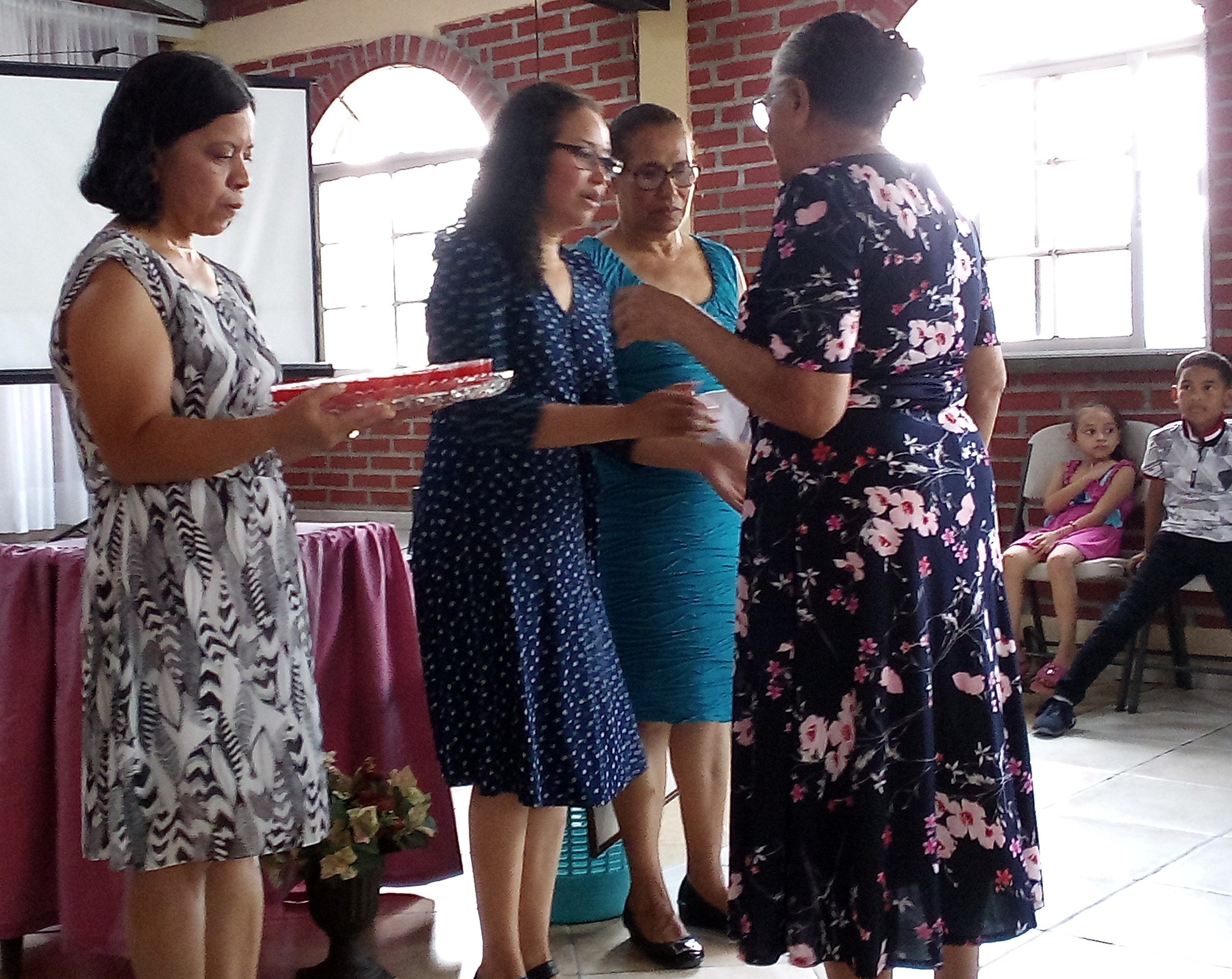Of the many things that create division in the United States today, Chris Arnade argues that the divide between front row and back row America we should pay more attention to is. He borrows the image from the classroom. Front row students are eager to learn and make sure the teacher knows they are learning. They want to achieve and get ahead. They leave home to accumulate educational credentials. They expect to continue moving from city to city to seek financial success—a shared goal and measuring stick whether one is from the right or left. In contrast whether because it was not their thing or because of barriers thrown up by realities beyond their control, the back row students do not flourish in school. They dream of graduating from high school, getting a stable job and raising a family in the community they grew up in. Today, however, many of their hometowns have hit hard times and good jobs are disappearing.
After getting a Ph.D. and working on Wall Street for 20 years, Arnade stepped out of front row America. He quit his job and hung out with back row people. He first focused on a neglected corner of New York City and the drug addicts who lived there, then he traveled across the U. S., visiting towns and cities in decline. Taking a seat in the back row he found people, all across the country, who felt rejected and stigmatized.
I read his book, Dignity: Seeking Respect in Back Row America while also reading David deSilva’s book on honor and shame in the New Testament world. DeSilva’s book led me to write my previous blog on the importance of honoring other Christians’ efforts to stand against the current of societal ways. Arnade’s book led me to think about the church’s call to lessen the dignity deficit of those in back row America. Rather, however, than simply writing a blog that calls us to look for ways to shower them with respect, I want to first follow Arnade and David Brooks in asking how front row people, like myself, may inadvertently contribute to the dignity deficit.
In a recent column David Brooks asked, “What if We’re the Bad Guys Here?” Brooks, a conservative and never-Trumper, states that people in his circles view Trump supporters as the problem. He does not fully reject that, but proposes that he and his peers are a greater part of the problem than they acknowledge. I recommend the full essay, but will quote just a few lines that relates to what Arnade describes in his book:
“The ideal that we’re all in this together was replaced with the reality that the educated class lives in a world up here and everybody else is forced into a world down there. Members of our class are always publicly speaking out for the marginalized, but somehow we always end up building systems that serve ourselves. The most important of those systems is the modern meritocracy. We built an entire social order that sorts and excludes people on the basis of the quality that we possess most: academic achievement.”
Similarly, Arnade writes, “The educational meritocracy is a well-intentioned system designed to correct massive injustices that enslaved, demeaned, constricted, and ranked people based on the color of their skin, sexuality, and gender. Yet in attempting to correct a nasty and explicit exclusion, we have replaced it with an exclusion that narrowly defines success as all about how much you learn and then earn” (234). He observes that the back row is left with little to take pride in that doesn’t need credentials—credentials they do not have (212).
I have lived the reality that Arnade describes. Some years ago on a visit to my hometown, front row Mark, with all my degrees and my professor job, walked down the block to visit my high school bus-stop friend Carlos. He fit Arnade’s back row description—still living on the same street and working at the same grocery store he had in high school. Yet, I was not sensitive to Carlos’s dignity deficit; it was not on my radar. However, in the even harsher status divisions in Honduras I did recognize people’s dignity deficit. I sought to pour honor into those with lower status. For instance, I knew that mechanics, doing manual labor and covered with grease, had low status compared to office workers. I intentionally regularly commended Edgardo, my mechanic, on his knowledge about cars that far surpassed mine. Aguinaldo was a partner in ministry and expert in regenerative agriculture methods—both in practicing them and teaching them to others. Yet, society saw him as just a peasant farmer with little formal education. Whenever he visited us or we visited him I would ask for tips on my compost pile and garden. I sought to counter shaming societal voices and called him my teacher, my agronomist.
I did well to affirm Edgardo and Aguinaldo as I did. Let us, with intentionality, do what I did and look for ways to affirm and show respect to back row people. Yet, through the lens of Brooks’s and Arnade’s words I now see my efforts in a different light. Note what I did in each case. I sought to give them front row credentials. It was like I was giving them an honorary degree. I do not regret those actions. I urge you to look for ways to do the same. But let’s do more than that.
As Arnade spent more time with and listened to back row Americans his perspectives shifted. At first, he saw those languishing economically in dying towns as lacking in imagination and initiative. (“Why don’t they leave and go somewhere they could get a better job!?”) But with time he came to recognize that many had intentionally decided to stay. Other values, such as caring for family members or connections in the community, drove their decision to stay. Living successfully according to those particular values does not, however, provide credentials or a sense of pride in the front row meritocracy that Brooks and Arnade describe.
My giving “honorary degrees” to Edgardo and Aguinaldo was a good thing. Rather, however, than just working to give them morsels of dignity according to the norms of the front row meritocracy, let us work to dismantle the meritocracy machine that is wounding them.
I do not mean by that to trash all the components of the system. I am an educator. I am grateful for all I have learned as a student and the opportunities I have had to teach. I think we do well to enable people to have educational opportunities and gain credentials. What I feel called to dismantle is the monopoly that the meritocracy machine has on so many people’s conceptions of success and thriving. Breaking up that monopoly does not mean abandoning the all the values, but relativizing them.
My sense is that for those of us in the front row, the values of the meritocracy machine are so much the water we swim in that we often do not recognize how they shape theway we evaluate others. Therefore, it will require intentionality to affirm values not honored by the meritocracy machine. As followers of Jesus, we have an advantage. We have a ready supply of alternative values we can honor in others and they are values as likely to be found in the back row as in the front.
How do we end the deep sense of division and the rejection and stigmatization felt by those in the back row? We can’t get credentials for them all, not even honorary degrees. We can, however, look at them through the lens of the beatitudes and the Sermon on the Mount and affirm them for ways their lives line up with the values of the Kingdom of God. We can invite them into a church community where in Jesus there is neither front row people nor back row people (Gal. 3:28).
Arnade began his journey through back row America as an atheist. After years of talking with back row people, who often took him to their churches, he shifted—not yet a believer, but pondering. He had seen the value of faith and especially of churches—often small storefront churches. He observed that churches were the only places on the streets that regularly treated back row people like humans and where they did not need credentials to be accepted. So, if an atheist author sees the church as an antidote to the shame and rejection of the meritocracy machine, how about us? Yet, a key observation: the churches he visited were generally filled with and led by back row people. A church with many front row people has the same potential, perhaps even greater potential, to heal the shaming wounds of the meritocracy machine, but also greater challenges to becoming the sort of environment Arnade describes.
Let us intentionally shift from the values of front row society as we look for things to affirm in others. And, let us bar the values of the meritocracy machine from entering our churches and instead recognize the great potential churches have to heal division through being spaces where people are honored for living out the values of Jesus rather than possessing meritocracy credentials.
Addendum: An example of a front row person changing and viewing someone through the lenses of Jesus values rather than meritocracy values.
In the midst of her career as an economics professor Mary Hirschfeld converted and became a Jesus follower. She then completed an additional Ph. D. in theology. I shared a parable from her book, Aquinas and the Market in an earlier blog. In that book she describes coming to know Hector, a prominent member of her Catholic parish. She writes, “As it turns out, he was also a gardener at the college where I worked. Until then, I had thoughtlessly paid no mind to the gardeners and janitors who worked hard to maintain a beautiful campus. I simply failed to value work that had little status in society. . . But as I came to know Hector, I came to realize that economic and social status is a very poor measure of a person's worth. Hector was a wise leader of our parish community. Surely the Christian call to deal with poverty extends to the demand that we recognize the value of what people do apart from the incomes they happen to earn by doing it. Yes, we can pay gardeners more. But a big part of what matters is the respect we accord them and the cultivation of our ability to see the wealth—which is the true sort of wealth—that the poor have to offer us” (187).








